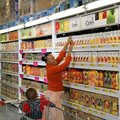Social distancing and quarantining have significantly shifted the landscape of media consumption globally. With consumers staying at home perpetually, there is an estimated 60% increase in the amount of content consumed daily, according to research from the U.S Nielsen Media. This means that content creators and advertisers have a massive opportunity to meaningfully engage with their consumers.
The knee jerk reaction to this crisis may be for brands to retreat on advertising while a few (on the opposite end of the spectrum) choose to connect with their consumers in a meaningful and reassuring way.
The Covid-19 pandemic provides a unique opportunity to businesses - the attention of a dedicated and impact-driven audience.
Now more than ever, consumers are looking to see how they can connect with and engage with brands who are purposefully driven by the global crisis we collectively find ourselves in. This is a crucial time for brands to reflect, re-evaluate and refresh their positioning, messaging and how they can contribute in a pivotal role in helping society weather this turbulent storm.
Fostered a lasting impression
Audiences and consumers are now more than ever aware of how the brands they support are equally supporting and showing solidarity beyond product placement. This climate creates an environment that should be actively providing emotional support, illustrating compassion, relatedness and impactful difference.
Historically, it has been proven that brands who maintain their brand salience during a crisis, live their brand values and continue to spend on advertising become the strongest after the crisis. And they recover the quickest.
According to an analysis of advertising numbers during the financial crisis of 2007-2008, there was a direct correlation between advertising spend and changing business activity. During the crisis, businesses that increased advertising budgets during the recession saw their sales soar while those who cut ad spend saw the opposite effect. After the 1990-1991 recession, a study by Penton Research Services found that the businesses that performed better had instituted a strong marketing program that “solidified their customer base and took business away from the less aggressive competitors”.
Izzy Pugh, Kantar 25 Mar 2020
This is because, while surviving tough circumstances, they managed to create a consistent relationship with their customers by displaying behaviour that said we are with you every step of the way, including the challenging steps. This fostered a lasting impression and solidified these proactive brands with fastidious brand loyalty and future growth during the recovery curve.
For example, ViacomCBS Networks Africa, globally developed #AloneTogether and #kidstogether campaigns, that aims to educate, inform and inspire our audiences about the importance of social distancing, mental health and self-care during the coronavirus pandemic. The campaign was developed in conjunction with the Ad Council in the US to encourage young people to stay home and find comfort and connection through entertainment.
Brands need to lean in
Audiences have responded well to this campaign and there has been a massive increase in total viewership across various target markets. This is a good example of what brands can do to deliver lasting impressions to their consumers without being indelicate or indifferent to customers during the crisis.
Currently, there is a significant spike across ViacomCBS Networks Africa's brands in viewership and engagement. This trend indicates that the fastest growing channel on TV viewing during the Covid-19 pandemic across the total available audience in South Africa is Nickelodeon, a dedicated children’s channel. Interestingly, this genre has seen a 71% growth in viewership, coming second to news at 89%. This serves as a testament to the power of family viewing often in favour of the younger audience channels, especially during this difficult time. The path to purchase clearly is a negotiation between parents and their children and younger generations are winning!
I strongly recommend brands to lean in and launch their re-approach on brand-building campaigns. This is a window to showcase how your brand is committed to making an indelible impact in community and society or demonstrate innovation that will win long term consumer adoption.
There has never been a more powerful moment than now to lean in.





























![Today, Halo and Demographica announce a new specialist agency, Second Rodeo]], headed up by Mike Stopforth (left). Dean Oelschig, managing partner and founder of Halo (right) says they will work as a group but ultimately, each agency will be an individual specialist](https://biz-file.com/c/2505/772543-64x64.jpg?2)







